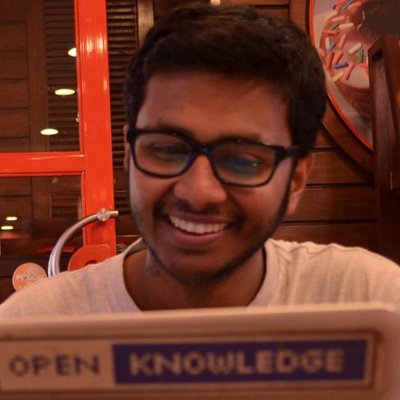Bangladesh
See the following -
5 Open Source Projects That Are Improving the World
One of the strengths of the open source community has been its ability to bring concentrated effort to bear on big problems. When tragedy strikes, or a pressing need arises, there are groups of people who gather together to attempt to solve the problems as a community. You may not have heard of these five open source projects, but they are attacking some of the world's biggest problems and making a true impact in people's lives... Read More »
- Login to post comments
Citizen Cartographers Fill The Gaps In Maps
...[M]aps are a vital resource, especially when deciding what infrastructure to build or in the event of a humanitarian crisis. Now teams of mappers are working to chart some of the most obscure corners of the developing world using OpenStreetMap (OSM), the citizen-mapping tool that today has over 1 million registered users.
- Login to post comments
Developing Nations Improving Health Communication Through the Use of DHIS2 (Part 1)
 DHIS2 implementations are spreading steadily among national health services in developing countries as well as among international non-governmental organizations (NGOs) working to improving health in the developing world through the use of health information technology. As an open source solution, DHIS2 offers developing countries the advantage of adopting a cost-effective and flexible solution for aggregate statistical data collection, validation, analysis, management, and presentation as well as for data sharing between healthcare professionals and facilities. Organizations and individuals who work with humanitarian software solutions will need to know what DHIS2 is, how it works, and how it might be implemented by national health services and other health-related projects across the globe...
DHIS2 implementations are spreading steadily among national health services in developing countries as well as among international non-governmental organizations (NGOs) working to improving health in the developing world through the use of health information technology. As an open source solution, DHIS2 offers developing countries the advantage of adopting a cost-effective and flexible solution for aggregate statistical data collection, validation, analysis, management, and presentation as well as for data sharing between healthcare professionals and facilities. Organizations and individuals who work with humanitarian software solutions will need to know what DHIS2 is, how it works, and how it might be implemented by national health services and other health-related projects across the globe...
- Login to post comments
Hackathon to Focus on Open Source Biometric System for mHealth in Poor Countries
 A team from Redgate Software, the Cambridge UK based company behind the world’s leading SQL Server and .NET development tools, is devoting a week to work on the code for an open source biometric fingerprint system that will improve the lives of the poor in the developing world. The system is used by SimPrints, a non profit tech company working with the Gates Foundation and charities like Médecins Sans Frontières to design a low cost biometric scanner that can be deployed in the field. With the scanner, a health worker can swipe a patient’s fingerprint to find and view the correct health records on a mobile device, either online or offline.
A team from Redgate Software, the Cambridge UK based company behind the world’s leading SQL Server and .NET development tools, is devoting a week to work on the code for an open source biometric fingerprint system that will improve the lives of the poor in the developing world. The system is used by SimPrints, a non profit tech company working with the Gates Foundation and charities like Médecins Sans Frontières to design a low cost biometric scanner that can be deployed in the field. With the scanner, a health worker can swipe a patient’s fingerprint to find and view the correct health records on a mobile device, either online or offline.
- Login to post comments
Mat Red
EVEN in rich countries childbirth is not a tidy affair. On an earthen floor in a dimly lit home in Bangladesh it can be a killer. Bangladesh has nevertheless reduced maternal deaths during childbirth by 40%, from 322 per 100,000 births to 194, during the first decade of this century... Read More »
- Login to post comments
Mozilla Brings Firefox OS-Powered Smartphones In Bangladesh
Mozilla, a pioneer in Web platforms, introduces the Firefox operating system for smartphones in Bangladesh, in cooperation with Grameenphone and device partner Symphony. Customers of Bondhu, Grameenphone’s youth offer, will be able to enjoy range of benefits on Firefox OS, including 20MB of free Internet per day...
- Login to post comments
South Asia floods: Appeals for Help as Monsoon Rains Cause Havoc in India, Nepal, Bangladesh
Oxfam said its Bangladesh staff reported two-thirds of the country was under water and in some areas the flooding was the worst since 1988, creating an urgent demand for humanitarian supplies. Widescale flooding in an arc stretching across the Himalayan foothills caused landslides and washed away tens of thousands of homes and vast swathes of farmland. The UN said about 40 million had been affected...
- Login to post comments
The Largest Wikipedia Gathering in South Asia Kicks Off
 Wiki Conference India 2016 (WCI), the largest gathering of contributors to Wikipedia and its sister projects in South Asia, will be held during August 5-7 this year in Chandigarh, India. The first iteration of this event was five years ago in 2011. The event is focused around South Asian language Wikipedias and Wikimedia projects. Hundreds of participants, including over 100 scholarship holders from India, Pakistan, Nepal, Bangladesh and Sri Lanka, will participate in this three-day event...
Wiki Conference India 2016 (WCI), the largest gathering of contributors to Wikipedia and its sister projects in South Asia, will be held during August 5-7 this year in Chandigarh, India. The first iteration of this event was five years ago in 2011. The event is focused around South Asian language Wikipedias and Wikimedia projects. Hundreds of participants, including over 100 scholarship holders from India, Pakistan, Nepal, Bangladesh and Sri Lanka, will participate in this three-day event...
- Login to post comments
There’s a Disaster Much Worse than Texas. But No One Talks about It
A quick quiz. No Googling, no conferring, but off the top of your head: what is currently the world’s worst humanitarian disaster? If you nominated storm Harvey and the flooding of Houston, Texas, then don’t be too hard on yourself. Media coverage of that disaster has been intense, and the pictures dramatic. You’d be forgiven for thinking that this supposedly once-in-a-thousand-years calamity – now happening with alarming frequency, thanks to climate change – was the most devastating event on the planet...
- Login to post comments
Unicef Is Funding Blockchain and Health Tech to Solve the World’s Biggest Problems
The United Nations has announced the first five startups to receive investment through its its $9 million (£7.2m) innovation fund. Unicef, the UN's children's charity, will be giving seed funding to companies working to create affordable mobile connectivity, blockchain in childhood development, data collection in maternal care, and technology to help improve literacy skills. The funding comes as part of Unicef's Innovation Fund – launched in February – and will see the organisation put up to $100,000 into each of the five firms...
- Login to post comments
We’re Not No. 1! We’re Not No. 1!
...a major new ranking of livability in 132 countries puts the United States in a sobering 16th place. We underperform because our economic and military strengths don’t translate into well-being for the average citizen. In the Social Progress Index, the United States excels in access to advanced education but ranks 70th in health, 69th in ecosystem sustainability, 39th in basic education, 34th in access to water and sanitation and 31st in personal safety...
- Login to post comments